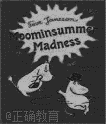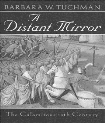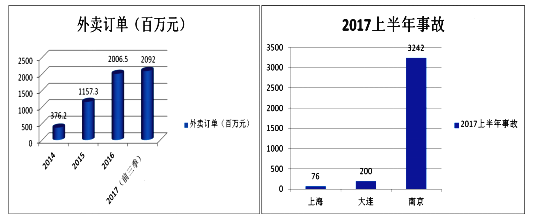-
 Historian Tom Holland is the award-winning author of Rubicon, Persian Fire and Millennium. He appears regularly on radio, TV and in print. His latest book Dynasty is published in paperback by Abacus.
Historian Tom Holland is the award-winning author of Rubicon, Persian Fire and Millennium. He appears regularly on radio, TV and in print. His latest book Dynasty is published in paperback by Abacus. Moominsummer Madness
Moominsummer MadnessBy Tove Jansoon
What I love about this book, as a child and still today, is its mix of the fantastical and normal. On the one hand, it’s about a family and their friends all enjoying themselves, quite happy not doing much. On the other hand, it’s about characters that can change into odd shapes, magicians coming down from the moon and peculiar creatures emerging from the roof. That mix of the familiar and the extraordinary informs all my writing.
 The Histories
The HistoriesBy HerodoTus
By the time I was 12, I was obsessed by Ancient Greece and Rome. At first, I found the early section of The Histories a real grind because it’s like a long shaggy dog story that never gets to the point.
In the second half I was rewarded with the stories I’d been waiting for, like the battles of Marathon, Salamis and Thermopylae. Over the years, I come to value the infectious curiosity of the first half and the portrait of the world in the fifth century BC seen through the eyes of this extraordinary Greek historian.
 A Distant Mirror
A Distant MirrorBy BarBara W TucHman
Tuchman’s book The Guns of August won the Pulitzer Prize, but it’s this slightly less well-known work that provided me with a role model for my own writing. Both scholarly and interesting, it’s a portrait of the 14th century in Western Europe and vividly evokes medieval civilization buffeted by cataclysms: the Black Death, the Peasants’ Revolt and the Great Papal Schism. I felt I knew what it was to die of the plague or to have a sword put through me— real stories told remarkably
1.Tom Holland now finds the first half of The Histories ___________.
A. off the point B. culture-centered
C. really boring D. quite entertaining
2.Which book does Tom Holland appreciate and try to copy its style?
A. The Histories B. A Distant Mirror
C. The Guns of August D. Moominsummer Madness
难度: 中等查看答案及解析
-
Plagiarism is the act of representing another person’s words or ideas as your own. The offense may be as small as a sentence copied from a book. Or it may be as extensive as a whole paper copied—or bought—from somebody else.
Intellectual dishonesty is nothing new. The only difference now is that the Internet has made it much simpler to steal other people’s work. Yet the same technology that makes it easy to find information to copy also makes it easier to identify plagiarism.
Teachers can use online services that compare papers to thousands of others to search for copied work. The teacher gets a report on any passage that is similar enough to suspect plagiarism. These services are widely used. Turnitin.com, for example, says it is used in more than 100 countries and examines more than 130,000 papers a day.
Professional writers who plagiarize can be taken to civil court and ordered to pay damages. In schools, the punishment for cheating could be a failing grade on the paper or in the course. Some schools expel(驱逐) plagiarists for a term; others, for a full academic year. Some degrees have even been withdrawn after a school later found that a student had plagiarized.
Accidental plagiarism can sometimes result from cultural differences.
At Indiana University in Bloomington, 60 percent of students who use the Office of Writing Tutorial Services are non-native English speakers. The director, Joanne Vogt, says some have no idea that copying from published works is considered wrong. She says students from China, for example, may think they are insulting readers if they credit other sources. They believe that educated readers should already know where the information came from.
The more you give credit, the less you risk accusations of plagiarism. Any sentence taken directly from a source should appear inside quotation marks. And even if you put those sentences into your own words, you should still give credit to where you got the information.
1.According to the passage, what is the role of the Internet in Plagiarism?
A. The Internet discourages people from choosing proper papers to copy.
B. The Internet helps people get their papers published online.
C. The Internet enables people to share their papers with others.
D. The Internet contributes to people copying papers from others easily.
2.We can infer from the passage that teachers know a paper is copied when they __________.
A. happen to be familiar with the content of the paper
B. make investigations concerning the paper among students
C. compare the paper with many others online to search for the copied ones
D. search journal and periodicals in the library for the original paper
3.Which of the following has NOT been mentioned as the punishment for plagiarism?
A. Fine of a certain amount of money. B. Withdrawal of some degrees.
C. Being forced to leave school. D. A failing grade.
4.The underlined expression “give credit” in the last paragraph probably means __________.
A. attribute what you’ve quoted from other sources to the original writers
B. praise the original writer for providing useful information
C. give the original writer a credit card for your copying the paper
D. admit that the original writer has a good reputation
难度: 中等查看答案及解析
-
As millions of Americans crowd into the gym armed with New Year’s resolutions to get in shape, medical experts are offering an additional reason for exercise: Regular workouts may help fight off colds and flu, reduce the risk of certain cancers and chronic diseases and slow the process of aging.
Physical activities have long been known to help maintain a healthy weight and reduce stress. Now, a growing body of research is showing that regular exercise—as simple as a brisk 30-to-45-minute walk five times a week—can boost the body’s immune system, increasing the circulation of natural killer cells that fight off viruses and bacteria. And exercise has been shown to improve the body’s response to the influenza vaccine (疫苗), making it more effective at keeping the virus at bay.
Medical experts warn inactivity poses as great a health risk as smoking, resulting in heart disease, cancer, depression, and diabetes. The Centers for Disease Control and Prevention says quite a few U.S. adults do not engage in any leisure-time physical activity.
Even slim people who are inactive are at high risk of death and disease. So while reducing obesity is an important goal, “the better message would be to get everyone to walk 30 minutes a day” says Robert Sallis, co-director of sports medicine at Fontana Medical Center. “We find it necessary to refocus the national message on physical activity, which can have a bigger effect on health than losing weight.”
Regular exercise has been shown to prevent the ongoing damage done to cells, tissues and organs that underlies many chronic conditions. Building on that earlier research, scientific studies are now suggesting that exercise-induced changes in the body’s immune system may protect against some forms of cancer.
Researchers are also investigating whether exercise can influence aging in the body. In particular, they are looking at whether exercise lengthens telomeres, the strands of DNA at the tips of chromosomes. When telomeres get too short, cells can no longer divide and they become inactive, a process associated with aging, cancer and a higher risk of death.
A study, published in Circulation, the medical journal of the American Heart Association, concluded that physical activity has an anti-aging effect at the cellular level, suggesting exercise could prevent aging of the cardiovascular(心脑血管) system.
The guidelines, developed by the Department of Health and Human Services, recommend that adults get at least two hours and 30 minutes weekly of moderate-intensity aerobic(有氧的) physical activity, or one hour and 15 minutes a week of vigorous-intensity aerobic exercise, or an equivalent combination of both. The guidelines also say that additional health benefits can be obtained from as much as doubling the minimum recommendation for aerobic exercise.
1.What is the main purpose of many Americans who take exercise?
A. To have a good figure. B. To make them strong-minded.
C. To cure some common diseases. D. To prevent themselves getting old.
2.It can be inferred from the passage that __________.
A. natural killer cells strengthen the body’s immune system
B. regular exercise can remove the viruses and bacteria
C. obesity has become a social problem in America
D. American people need to attach more importance to physical exercise
3.How can physical activity stop aging?
A. By preventing cell division. B. By getting rid of aging cells.
C. By making telomeres longer. D. By repairing the damaged organs.
4.What might be the best title for the passage?
A. New Studies about Physical Exercise B. The Hidden Benefits of Exercise
C. How to Free Ourselves from Diseases? D. Lose Weight or Keep Healthy?
难度: 困难查看答案及解析
-
It is not hard to find evidence of the success of the “sharing economy”, in which people rent beds, cars and other underused assets directly from each other, or via the internet. One pointer is the large amount of demand and supply. Airbnb claims that 11m people have used its website to find a place to stay. Lyft, a company that matches people needing rides and drivers wanting a few dollars, has spread from San Francisco to 30-odd American cities. Another sign is the frothy values (泡沫价值) placed on sharing-economy companies: Airbnb is estimated to be worth $10 billion, more than hotel chains such as Hyatt and Wyndham, and Lyft recently raised $250m from venture capitalists. But perhaps the most flattering—and least welcome—indicator of the sharing economy’s rise is the energy being devoted by governments, courts and competitors to preventing it.
The main battlegrounds are the taxi and room-rental businesses. A court in Brussels has told Uber, another San Francisco ride-sharing and taxi-services startup, to stop operating in the city. Other cities have banned their services outright, or tried other ways of putting spokes in their wheels. Meanwhile the Hotel Association of New York has been lobbying for (游说) stricter enforcement of a rule that bans absent owners from letting their apartments for less than 30 days, which makes most of Airbnb’s listings there illegal.
The newcomers’ opponents, whether competitors, officials or worried citizens, complain that the likes of Airbnb and Lyft dodge (躲避) the rules and taxes that apply to conventional businesses. Regulations exist to keep hotel rooms clean and fire alarms in working order, to stop residential areas being filled with unlicensed hotels, and to see that drivers are insured, checked for criminality and tested on their knowledge of the streets. Cowboys such as Airbnb, Lyft and Uber, their critics claim, are a danger to an unsuspecting public.
The objectors have half a point. Taxes must be paid: a property-owner who rents a room should declare the income, just as a hotel should. Safety is also a concern: people want some assurance that once they bed down for the night or get into a stranger’s car they will not be attacked or robbed. Zoning (划分区域) and planning are also an issue: peace-loving citizens may well object if the house next door becomes a hotel.
Sharing-economy firms are trying to mitigate (缓和) these problems. They have tightened insurance cover for their drivers and have offered to collect hotel taxes. They have an interest in their participants’ good behavior: as hosts, guests, drivers and passengers all rate each other online, their need to protect their reputation helps to maintain standards and keep people honest. But if consumers want to go for the cheaper, less-regulated service, they should be allowed to do so.
The truth is that most of the rules that the sharing economy is breaking have little to do with protecting the public. The opposition to Lyft and Uber is coming not from customers but from taxi companies, which understand that GPS makes detailed knowledge of the streets redundant (多余的) and fear cheaper competition.
This all argues for adaptation, not prohibition. An unlikely pioneer is San Francisco. Lyft and Uber got going in the city partly because taxis were hard to find, but the authorities have tolerated them. San Francisco bans rentals of less than 30 days, but is considering allowing people to let their residence, provided they live there most of the time, register with the city and pay its 14% hotel tax.
1.According to Paragraph 1, the success of the “sharing economy” is indicated by the fact that __________.
A. many people are trading their underused assets freely via the internet
B. growth in online rental demand has exceeded supply in many regions
C. its total capital value has surpassed that of conventional business
D. sharing economy companies are suffering from a number of attacks
2.Opponents complain that the taxi and room-rental businesses _________.
A. frequently make anti-competitive market behavior
B. are often involved in illegal business practices
C. are lacking in necessary rules and regulations
D. have caused a lot of accidents and crimes
3.By “have a half point” in Paragraph 4, the author probably means the objectors “__________.”
A. fail to indentify the safety problems existing among sharing economy firms
B. have overstated the dangers brought about by sharing-economy firms to the public
C. fail to realize the need of zoning and planning in sharing economy
D. have overestimated the impact of sharing economy firms on the traditional counterparts
4.The author believes that the current opposition to sharing economy mainly reflects_________.
A. the mission of protecting the public B. the complaints from service consumers
C. the fear among conventional businesses D. the dissatisfaction among service providers
5.What is the author’s attitude toward the practice of San Francisco authorities?
A. Indifferent. B. Skeptical. C. Disapproving. D. Positive.
难度: 困难查看答案及解析

